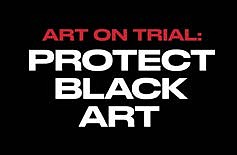ARTISTS, INDUSTRY LEADERS, LEGAL EXPERTS JOIN TOGETHER TO PROTECT BLACK ART
TOGETHER TO PROTECT BLACK ART
limit how creative expression can be used against defendants on trial. Specifically, it calls for an end to the racially discriminatory practice of treating rap lyrics as confessions.
such as Warner Music Group, Sony Music Group, Universal
Music Group, BMG, Kobalt, and Atlanta-based LVRN and Quality
Control, AEG Presents, Audiomack, Deezer, Live Nation Entertainment, SiriusXM, SoundCloud, Spotify, TIDAL,
TikTok, and YouTube Music; organizations like the American Association of Independent Music, the American Civil Liberties Union, Artist Rights Alliance, Black Music Action Coalition, Black Women’s Roundtable, BLD PWR, Color Of Change, Foundation for Individual Rights and Expression, NYU Center on Race, Inequality, and the Law, People For the American Way, PEN America, Rap Coalition, the Recording Academy, the Recording Industry Association of America, Red Hot, Sankofa.org, Songwriters of North America, Sony Music Group’s Global Social Justice Fund, and Warner Music Group / the Blavatnik Family Foundation’s Social Justice Fund.
reads in part:
submitted as evidence – three of those cases were thrown out, and the fourth was overturned after conviction.
Latest Stories
- Legacy Speaks: Mapping Ida B. Wells' Imprint – A Tribute to Ida B. Wells on Her Birthday
- Cook County Commissioner Donna Miller Launches Congressional Campaign
- Community’s Voice Shapes Future Leadership
- Chicago Board of Education Approves Resolution Launching Healthy Green Schools Pilot Program
- CVS Health opens new Workforce Innovation and Talent Center in Chicago
Latest Podcast
STARR Community Services International, Inc.

